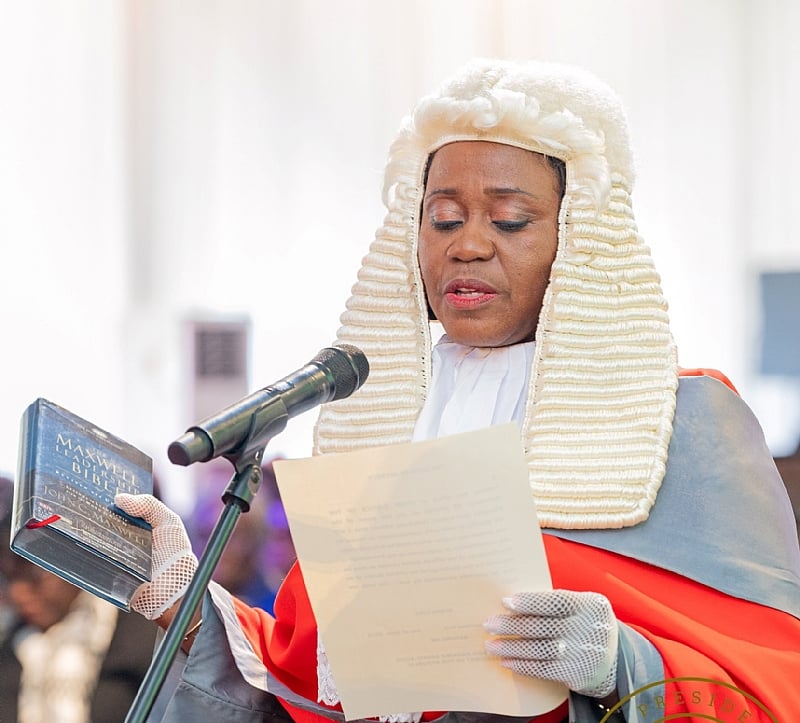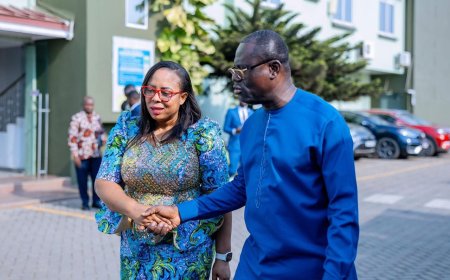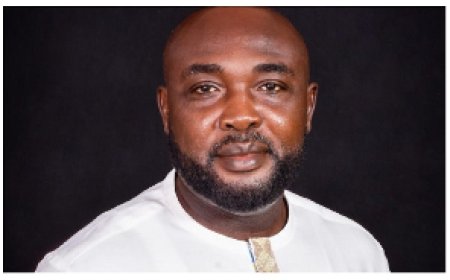Judicial Independence Demands Accountability Even at the Very Top - GOGO

Judicial independence is the cornerstone of every functioning democracy. It guarantees that courts remain impartial arbiters, immune from political or personal interference. Central to this ideal is the security of tenure enjoyed by judges—especially the Chief Justice, who serves not just as an administrator, but as the guardian of the judiciary’s integrity.
But independence without accountability is a dangerous proposition. A rogue Chief Justice, shielded from scrutiny, can unleash mayhem and bedlam on the judicial system—and by extension, on the entire republic. That is precisely why our Constitution provides a mechanism under Article 146 for the removal of a Chief Justice who engages in stated misbehavior, incompetence, or infirmity. This mechanism is not a tool for partisan retaliation. It is a safeguard for constitutional governance.
It was under this framework that GOGO submitted a petition in December 2024 for the removal of the current Chief Justice. GOGO did so not lightly, but with deep concern over documented and serious misconduct: the unilateral recommendation of five justices to the Supreme Court in violation of constitutional procedures; the reshuffling of court panels even after cases had been argued; the issuance of binding administrative directives without legal basis; and unauthorized backchannel communications between the Chief Justice and the Presidency—communications that raised serious concerns of conflict of interest.
Rather than refer these grave allegations to an independent committee—as Article 146 clearly requires— President Nana Akufo Addo dismissed the petition, asserting that it failed to disclose a prima facie case. That decision was not just wrong. It was dangerously flawed—legally, procedurally, and constitutionally. Here's why.
First, the former President applied the wrong standard. A prima facie determination is not a trial. It does not demand proof as demanded by the President. It merely asks whether the allegations—if taken as true—warrant further investigation. My petition clearly met that bar. It cited specific dates, referenced official correspondence, named affected justices, and pledged to present witnesses, including Justice Senyo Dzamefe. To dismiss these detailed and corroborable claims as “hearsay” was to usurp the role of the constitutionally mandated investigative committee.
Second, the former President mischaracterized the petition as lacking evidence. This is plainly incorrect. The petition referenced a February 7, 2024 letter from the Chief Justice to the President advocating for the expansion of the Supreme Court—a fact the President astonishingly denied. It detailed improper panel reshuffling, constitutionally dubious directives, and interference with judicial independence. These were not speculative accusations. They were concrete, constitutionally relevant claims that merited inquiry.
Third, the determination itself was riddled with factual inaccuracies and legal missteps. It claimed—without evidence—that I had violated confidentiality by circulating the petition publicly, using this to discredit my petition and question my motives. It portrayed administrative decisions like case transfers and directive issuance as unreviewable, ignoring the Agyei-Twum precedent, which explicitly affirms that administrative acts by the Chief Justice can form the basis of removal proceedings under Article 146.
Fourth, the tone and language of the determination betrayed a lack of impartiality. Describing me as a “self-acclaimed advocate for good governance” and fixating on alleged breaches of decorum rather than addressing the substantive allegations cast the entire response in a defensive, politicized light. This impression is only reinforced by the fact that some of the allegations implicated the Presidency itself. A President with a potential conflict of interest should have been especially circumspect and deferential to the independent inquiry process.
Fifth, the process was inconsistently and unfairly applied. When a petition was brought against former Electoral Commission Chair Charlotte Osei, the President allowed procedural irregularities to be corrected and even permitted a resubmission. I was granted no such courtesy, despite offering additional evidence and witness testimony. This disparity violates principles of equal treatment and administrative justice under Articles 23 and 296 of the Constitution.
Sixth, the President overstepped his constitutional mandate. Article 146 is clear: the President’s role is limited to determining whether a petition raises a prima facie case—not whether the allegations are ultimately valid.
That evaluative function belongs to a committee of inquiry. By delving into the merits and defending the conduct of the Chief Justice, the former President assumed powers not granted to him under the Constitution. This undermines the separation of powers and the very accountability framework that Article 146 was designed to protect.
Finally, the implications of this decision are deeply troubling. If these allegations are swept aside without investigation, we risk normalizing a dangerous precedent. Future Chief Justices may feel emboldened to bypass constitutional safeguards, while the public grows increasingly cynical about judicial independence. The result? An erosion of public confidence in an institution that is supposed to safeguard our rights and protect us from the elected branches.
Let me be clear: I respect the office of the Chief Justice. I respect the Presidency. But respect must not become a shield for constitutional violations. My petition was not political theater. It was a constitutional act of civic responsibility. The petition was presented in the same spirit as the writ I issued when the President dismissed the Auditor General. The President’s decision to dismiss it was not an act of prudence—it was a failure of constitutional duty.
We cannot protect the judiciary by turning a blind eye to alleged misconduct at its highest level. And we cannot claim to uphold the rule of law while shielding the powerful from scrutiny. If Ghana is to remain a constitutional democracy, then no one—no matter how exalted—can be above accountability.
Da Yie!
Author: Prof. Stephen Kweku Asare (Kweku Azar)
























































